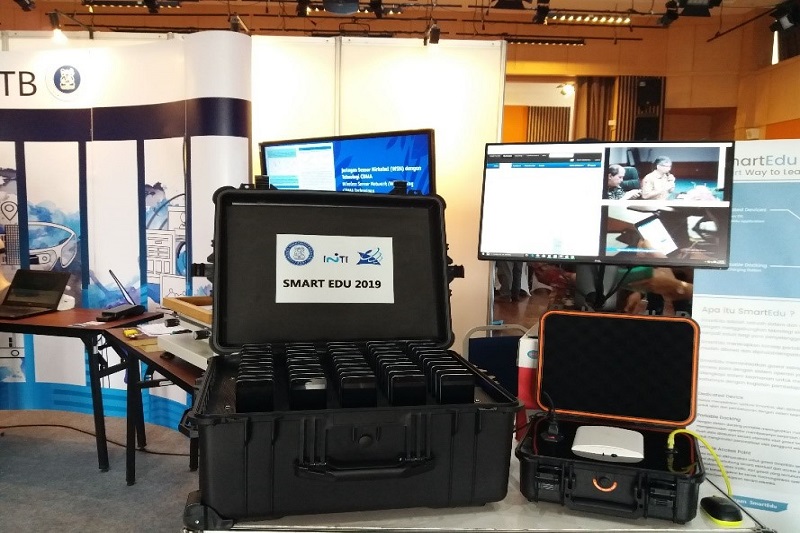
Indonesia’s Bandung Institute of Technology continues its journey of improving the educational experience of its students with the SmartEdu innovation.
About the Initiative
According to a recent press release, the SmartEdu is an integrated computer-based examination system that will support a more effective and efficient teaching and learning experience.
It was developed by a team of lecturers and researchers from the School of Electrical and Information Engineering (STEI) and the Center for Microelectronics (PME).
The system was originally created to assist lecturers in choosing the material that will be taught in class.
Prior to the start of class, the lecturer will conduct a test. The focus of the lessons will be based on the scores of the students.
They will be able to determine which material needs deeper explanation and discussion, thus making the learning more efficient and right on target.
Compared to the existing computer-based examination system, SmartEdu is more concise, simple and mobile.
How Does it Work?
The system is made up of three components. These are:
- The Gawai
This device is a smartphone that is supposed to replace the computer. Applications stored in the smartphone use a homemade operating system.
- Portable docking
The second component is a suitcase that is used for charging as well as storage of the smartphones. Five smartphones are arranged in one row.
The suitcase has been installed with sensors that automatically detect whether a stored smartphone has less battery power. Once detected, the smartphone will be charged automatically and charging would stop once full.
- Access point
The use of local access points would prevent cheating or other activities not related to learning.
The application that was developed with the system has a very simple interface. Users simply need to log in. After which, they will be directed immediately to a set of questions.
They need to choose which group of questions they have to do. After completing the task, participants would need to submit their work then log out of the application.
The results of the test will be released immediately.
Challenges and Future Plans
The team faced several challenges during the development of the system. First would be the bugs and errors they encountered, which they needed to address through programming.
Another problem is the use of an open-source operating system (OS). As such, changes made to the OS would require the OS to be re-installed.
When an OS is re-installed several times, it may cause problems to the smartphones, particularly to components such as storage memory, because they can be easily damaged and would need replacement.
Currently, the energy source for charging is still via electricity. However, the system will be integrated with portable solar cells in the future so that it be used anywhere, including remote places in Indonesia that have no electricity yet.
Hopefully, SmartEdu can be used for all types of computer-based exams in the future, not just in the University but also in other exams such as college entrance tests.
Improving Education Via ICT
Tech equipment help improve the learning experience and so countries across the globe have discussed and implemented their own initiatives.
The ‘Education for 2050’ workshop at New Zealand’s Victoria University of Wellington offered glimpses of the impact of digital technologies such as virtual reality (VR), artificial intelligence (AI) and big data on education over the next 30 years.
Digital technology has developed dramatically in the past 30 years and it is expected to develop considerably further in the next 30.
Although there is excitement and anticipation about the potential of these new technologies for educating people, the assembled experts grounded it in a firm shared belief in the relational nature of education and the view that technology cannot replace human relationships.
Meanwhile, the Kerala state government in India has published revised guidelines for the procurement of tech equipment in schools and educational offices.
IT equipment in the revised guidelines includes laptops, projectors, USB speakers, projector mounting kits, and LED televisions. Laptops need to be installed in schools considering their portability, power backup, and minimal power consumption features.
















